If you’re confused about what the new Trump tariffs will mean for your wallet, you’re not alone. Consumers and PC vendors alike are trying to figure out what it means and how everyone can avoid paying more than they have to.
Fortunately, some vendors are starting to come forward and explain how their costs are being affected and how they’re being passed along to you — or not.
PC vendors are just like you, in that they’re buying processors, GPUs, and other components for their products. But while you can track an SSD price as it rises and falls on Amazon, you have no real way of knowing what the future holds. PC vendors do, because they talk to component vendors regularly. Normally, however, they keep these conversations secret.
Recently, two PC vendors, Framework and Puget Systems, have not only begun talking about how tariffs will affect the price of the products that they sell to you, but also about the prices they’re paying for components and whether they’ll go up or down — and by how much. It’s all extremely valuable information, especially if you’re confused about what tariffs will affect which parts inside of a PC. Even better, they’re updating their insights as new info comes in, especially because the expected cost of the tariffs has been vague and changing.
Of course, neither vendor can say for certain what will happen at any moment in time; President Trump has raised and lowered tariffs unexpectedly throughout the past few days. As of press time, tariffs on imported Chinese goods stand at 125 percent, while he has enacted a “pause” on other worldwide tariffs — but they’re still 10 percent, regardless, while the “cheap tariff loophole” has been eliminated, too. And remember, chip tariffs could begin on June 1.
A year ago, no one cared where a PC or a component was made. Now, you absolutely should.
Tariff lessons you can learn from Framework
Framework, a modular PC supplier, sources its components from a variety of companies and countries. As a small supplier, the tariffs have hit hard; Framework only recently began allowing customers to pre-order its latest Framework Laptop 12 in the U.S., and earlier “paused” some existing Laptop sales in response to the ongoing tariffs.
Nirav Patel, the chief executive and founder of Framework, explained that Framework was originally founded five years ago upon the principle that, eventually, U.S.-China relations would sour, and tariffs would be applied. Framework thus performs much of its assembly in Taiwan.
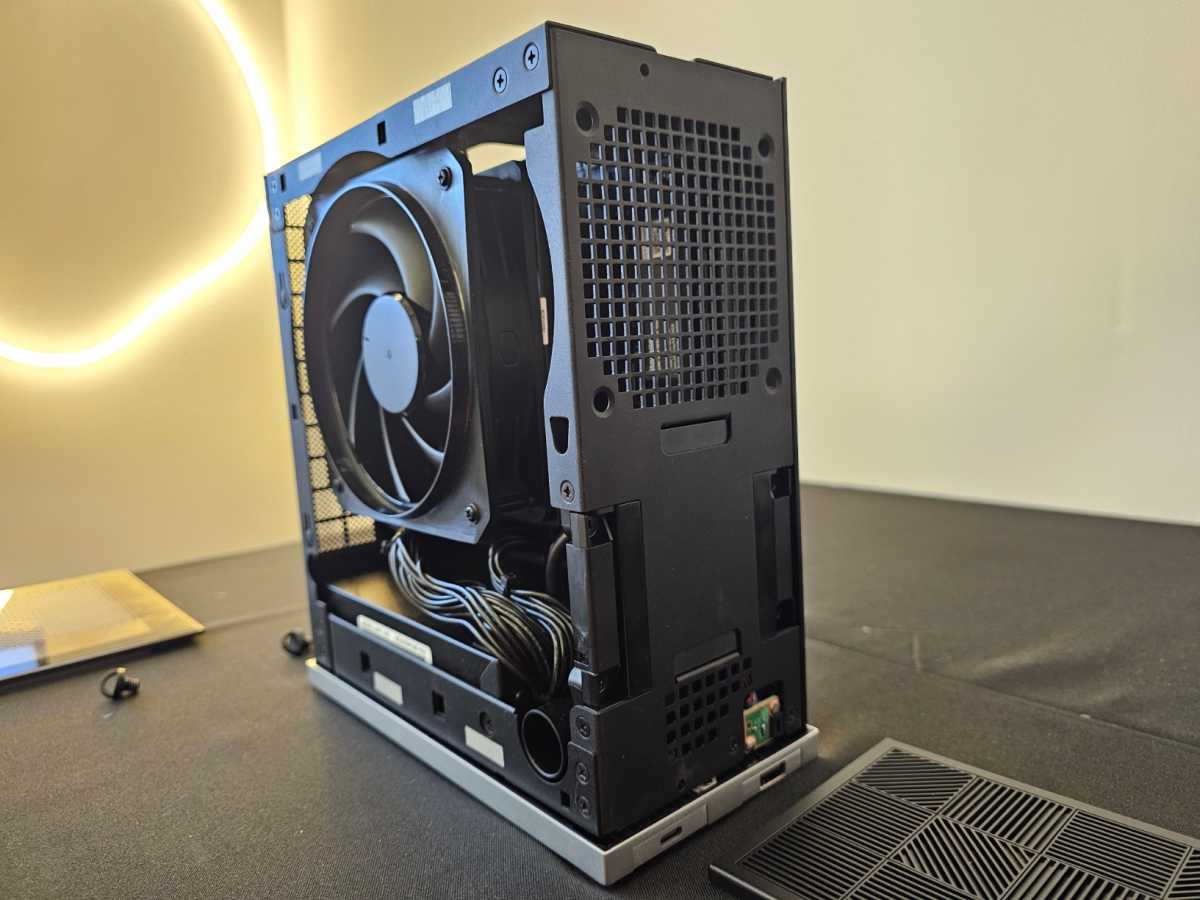
Mark Hachman / Foundry
At Framework, here’s how it breaks down: Framework laptops, desktops, and its mainboards are assembled in Taiwan — subject then to a 32 percent tariff, which has now fallen to 10 percent. Some of its pluggable USB-C modules are made in Taiwan, but the majority are made in China, still subject to a 125 percent tariff. Framework buys Western Digital’s modules from Malaysia (then: 24 percent tariff, now: 10 percent).
Framework’s Patel had some interesting advice for customers looking to buy their tariffed storage: “[We] recommend that you purchase it elsewhere for your DIY Edition if possible, like directly from the Western Digital website.”
The other lesson? Bye-bye, budget PCs. If low-priced PCs can’t be sold at a high enough profit, PC vendors will withdraw them.
“For our lowest-priced base systems, where we’re unable to absorb the remaining 10 percent tariff, ordering is still paused for US customers,” Framework said. “Many of our modules are manufactured in China, which now face higher tariffs. On these items, we are keeping elevated pricing for now to cover the tariff cost. We’ll continue to monitor this situation and update pricing if needed.”
What Puget predicts will happen with PC part pricing
Puget Systems is a smaller boutique workstation vendor, which has published detailed updates on how the tariffs are affecting its own costs and end prices. Puget has also drawn a distinction between directly tariffed goods and indirect tariffs — for example, while DRAM might be manufactured in the United States, the printed circuit board on which it is mounted might ship from China.
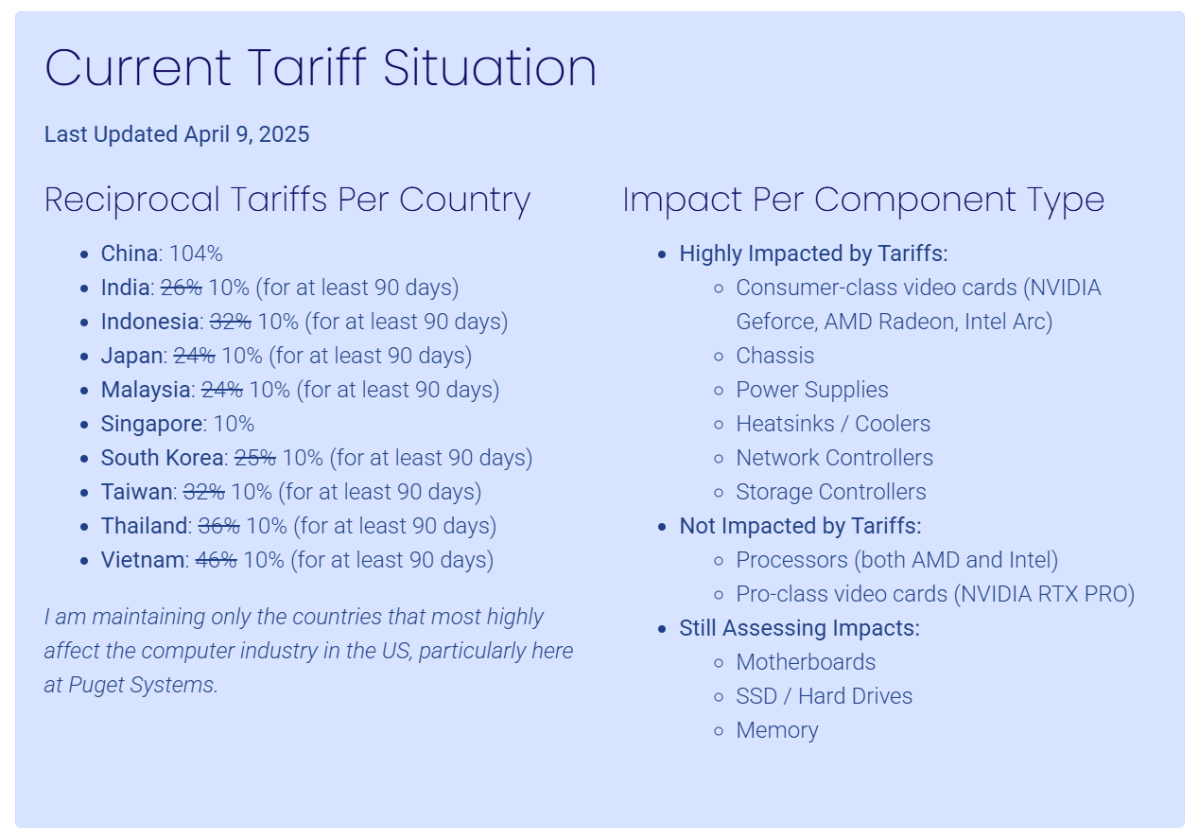
Puget Systems
The biggest impact, Puget says, will be felt on the most expensive components — with one exception. Processors, both from AMD and Intel, are exempt from the tariffs, apparently because they are officially shipped from the United States. Some video cards are, too.
On the other hand, demand and prices for Nvidia’s latest GeForce 5090 were already insane, and they’re probably going to get worse. “When a new product is released and in high demand, supply is typically constrained, causing prices to inflate significantly,” Puget president Jon Bach wrote. “The 5090 definitely falls into that camp! I can’t remember a product in recent history that has been in such short supply for so long after launch, and the future doesn’t look much better.”
Here’s how Puget sees the tariff increases affecting the prices of the components it buys. While the actual percentage costs were tied to the earlier, per-country tariffs, you can basically take them as an indicator of how price-sensitive they are.
- Motherboards: Puget said on April 1 that it would absorb any price increases in motherboard costs, if only because they come from a variety of countries.
- CPUs: No impact!
- SSDs: Puget expects prices to climb by 10 percent — but not from tariffs, but from supply constraints.
- Memory: Prices were on a downward trend before the tariffs hit, so the price that Puget (or you) pays could remain flat or even slightly dip.
- GPUs: An enormous question mark. GPUs were previously tariffed at 20 percent, and this may have already been partially priced in. “This is the worst news in this post because these components have a high cost to begin with, so even a smaller percent increase means a bigger dollar increase!” Bach wrote.
- Network and storage controllers: Puget expects to pay about 20 percent more here, although these would probably be confined to its workstation/rack products.
- Chassis and power supplies: Puget expects to pay 20 percent more, and it seems reasonable that enthusiasts would too. “Large-scale chassis production almost always comes from China, so our costs are directly impacted,” Bach wrote.
- CPU coolers and fans: Puget’s Bach said that prices of these components should rise by about 20 percent. Fortunately, they’re not that expensive, relatively.
It’s a hard sell, but you might want to buy now. Puget’s Bach said he expects the Trump chip tariff to kick in on June 1, with potential cost increases of between 20 and 45 percent. Fortunately, Puget is using the “pause” in tariffs to import as much inventory as the company can to stockpile parts in U.S. warehouses before any additional tariffs are implemented again.
Framework gets nerdy about tariffs
Since PC vendors do as much assembly as they do building, how does the government decide which products are tariffed and which aren’t? Framework drew back the curtain to explain how its products were affected. (This might be too much information!)
“When goods are imported into the US, tariffs are assessed based on the country of origin and the HTS (Harmonized Tariff Schedule) code that the goods are classified as,” Framework’s Patel wrote.
“We ship all of our products DDP (Delivered Duty Paid), meaning we pay tariffs as goods clear customs and include the cost inside of our product pricing,” Patel added. “The tariff is calculated against the value of the product at import, meaning our cost as the importer, rather than the final price we charge for the product. The country of origin is defined as the last location in which “substantial transformation” occurs. For computers, US Customs has specifically defined substantial transformation as the location at which the main circuit board is assembled.”
Ugh, right? Being a smart PC builder right now means that you might have to take an economics class in your spare time. Hopefully more PC vendors come forward to share what they know.
Chcete-li přidat komentář, přihlaste se
Ostatní příspěvky v této skupině
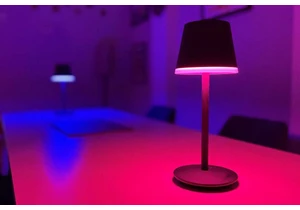
The Philips Hue app has grown in complexity over the past several yea

Though the Steam Deck has been imitated by major PC industry players
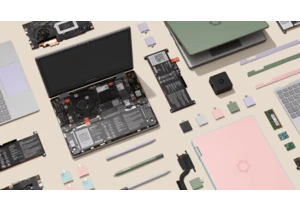
A senior Intel executive said Tuesday that Intel has begun building m
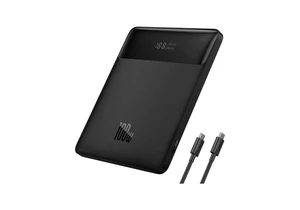
The best way to ensure your laptop never dies on you—whether you’re w

Just having a password set on your PC in Windows 11 isn’t a sure way
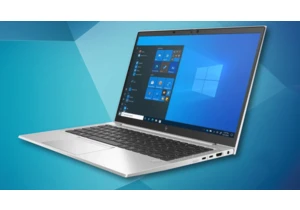
Okay, bargain hunters, settle in. This is probably the best deal I’ve
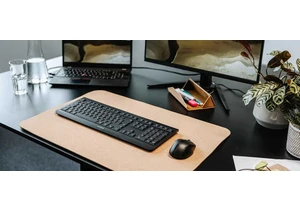
Is your mouse suddenly registering two clicks even though you swear y
